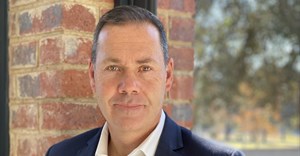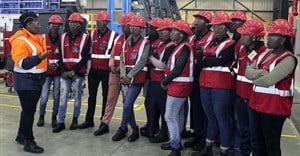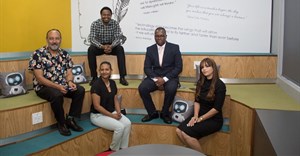Trending
Elections 2024
Jobs
- Cambridge English Lower Secondary Project Manager Paarl
- Science Editors Cape Town
Helping teachers get better at 'how' to teach as well as 'what' to teach

But it’s hugely important that teachers try new things and develop new understanding of subject knowledge. Research shows that pupils learn better when their teachers are not only well versed in the subject, but are also willing to be flexible about how they teach.
We believe it’s valuable to target teachers who are still studying and haven’t yet started working in schools to think differently about what they know and how they teach. That’s why we created a novel approach to professional development for trainee physics teachers at Mauritius’ sole teacher training institute.
Over a period of 18 months, we followed the student teachers’ progress. At the beginning, we found that student teachers struggled to explain the physics concepts they would be expected to teach to high school pupils.
The concepts were taught (in mock classroom settings) in a way that would almost certainly lead to learners developing misconceptions about important concepts in physics.
We tackled this in our professional development course by getting the trainee teachers to write tests and integrate constant feedback into their work. This helped them become more aware of their existing physics knowledge – and where it was lacking. They became eager to keep learning and also to try a gamut of different approaches in the learning process.
By improving their content knowledge, we improved their teaching skills. This set them up to enter the classroom better prepared, both in terms of how to teach and what to teach.
Understanding the subject
Teaching and learning physics is no easy task. In Mauritius, you can become a physics teacher if you hold an undergraduate degree in the subject and then complete a teacher training course at a later time.
The problem is that having a degree in the subject is no guarantee you’ll be a good physics teacher. For one thing, a lot of research has shown that people with undergraduate physics degrees don’t always have proper conceptual understandings of the various phenomena encompassing physics.
And that is not something which you can learn at a teacher training college. These institutions focus on the “how” of teaching: how to manage a class, how to devise a curriculum, or how to get pupils interested in a topic.
Our course featured some pedagogical knowledge – that is, equipping future teachers to go out and teach. But the focus was on content knowledge, particularly for those teaching 11 to 18-year-olds.
The idea was to keep testing pre-service teachers on what they knew about physics, so they could learn about their own misconceptions and knowledge gaps with the support of the facilitators.
Correcting misconceptions
Though we followed the work of several pre-service teachers in this process, we ultimately chose a case study approach. This involved following a single student teacher’s progress over 18 months, and seeing how she developed much stronger subject knowledge as a result of continuous and regular formative assessment tasks and ample written and verbal feedback.
In the beginning, the student battled to explain simple physics concepts – things like gravity and velocity. But she didn’t realise she was getting anything wrong; she could not identify her own misconceptions. The fact that she was enrolled in the course we’d set up meant that she had ample opportunities to learn where she’d erred.
This is extremely important: physics teachers’ misconceptions about their own subject knowledge should be identified and corrected before they become firmly ingrained notions. Working with pre-service teachers in a professional development context, rather than waiting until teachers are already active in classrooms and passing their misconceptions on to pupils, is crucial.
A valuable tool
By the end of the 18-month course we could identify to some extent some improvements in deductive reasoning and problem solving skills of the student teachers.
As we already stipulated, misconceptions are firmly ingrained in the mind of teachers, and these are very often intertwined with other concepts in physics and mathematics.
The 18-month course essentially drew the student teachers’ attention to the presence of their own misconceptions. It also gave them the necessary tools to address and repair these.
Our work shows that introducing conceptual tests during professional development courses (both for teachers who are already working and those who are yet to qualify) can be extremely valuable.
Testing content knowledge in these courses and offering constant feedback to teachers can help them to correct their misconceptions and eventually encourage them to reflect critically on what they do – and don’t – know.
This article was originally published on The Conversation Africa.
Source: The Conversation Africa

The Conversation Africa is an independent source of news and views from the academic and research community. Its aim is to promote better understanding of current affairs and complex issues, and allow for a better quality of public discourse and conversation.
Go to: https://theconversation.com/africa















